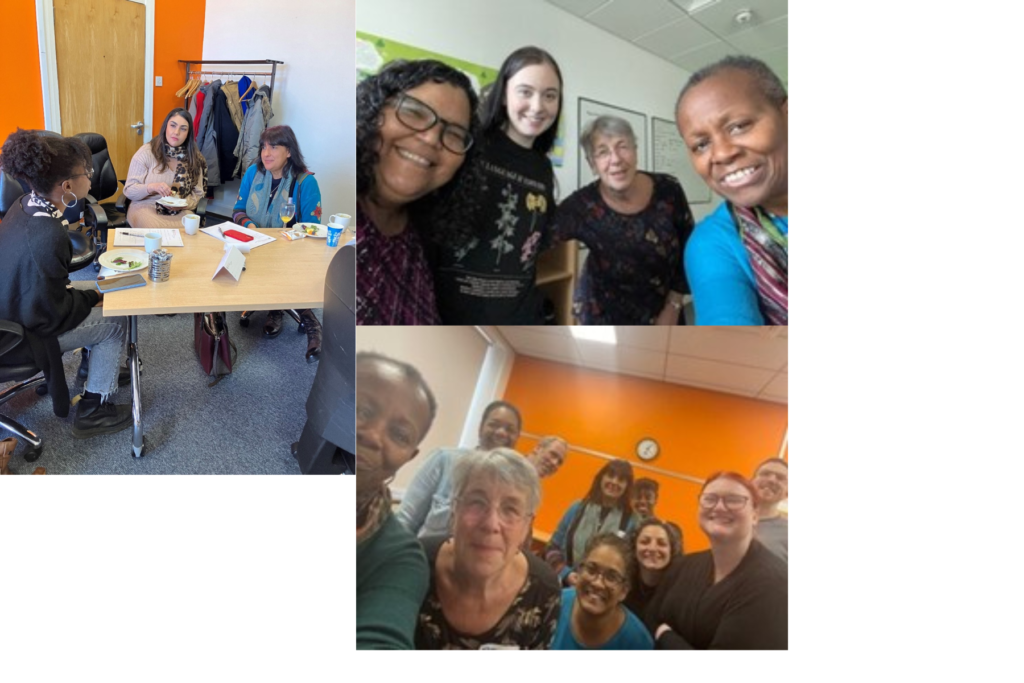The Robertson Trust has invested in Scottish Attachment in Action’s, ‘Why Attachment Matters to Black and Minority Ethnic Families’ Proposal.
Black and minority ethnic families and communities are too often on the edge of services that could offer support. When services are accessed, there can be a lack of understanding of societal power and inequality leading to their voices not being heard and continued ‘othering’.
SAIA has received funding from the Robertson Trust for three years from 2022-25 for ‘Why Attachment Matters in Supporting Black and Minority Ethnic Families’, a project for people from black and minority ethnic communities and the white parents and carers of black and/or mixed heritage children. The aim of this project is to help those taking part to build their resilience and confidence in finding support for themselves and their families.
As part of the project, we have co-created and continue to develop the course, ‘Why Attachment Matters: Attachment, Racism and the Impact on Relationships’. During this course, participants develop a better understanding of attachment and racism and are able to reflect on the ways power inequities impact their own lives and relationships.
We explore the importance of secure attachment and the benefits not only in strengthening relationships within our families but also in our wider communities.
As we do so, participants reflect on what attachment means to them and on their own attachment history. With this raised self-awareness, they are able to explore what would be supportive, in their own lives, their family’s lives and in their communities, to ensure their voices are heard.
Sustainability
Sustainability beyond the funding in terms of building a community of formal and informal support, will be at the forefront of this project. The impact of the courses will be evaluated. More information will be available about ‘Why Attachment Matters in Supporting Black and Minority Ethnic Families’ as the project develops.
Project leaders
The project is being led by Gillian Neish and Edwina Grant. Gillian is a trustee of SAIA and a trainer who works with individuals and organisations in all sectors, to help them recognise and fulfil their potential. The focus of her work is power, whether challenging the power inequalities of racism, sexism and other ‘isms’ or developing personal power through personal development programmes. Edwina is an independent chartered educational psychologist and certified Dyadic Developmental Psychotherapy (DDP) practitioner, consultant and trainer. She works with children and families in a range of contexts from residential care to family therapy.
What has happened since the project started?
Gillian and Edwina have facilitated a range of courses (some in-person, some online, some hybrid) in Glasgow, Aberdeen and Edinburgh. These courses have been ‘open to all’ and there has been a wide range of participants from different cultural backgrounds and settings including parents, foster carers and practitioners from social work, health and education.
As we build the community of folk who have worked with us, we are keeping in touch with those who wish to stay connected with us and with each other through our in-person and on-line sessions called ‘Staying Attached: Connect and Chat’ as well as via Whatsapp.
Based on the feedback we have had from our participants and others keen to be involved with this project, in the next year (2024–2025), Gillian and Edwina will focus on offering more courses and on developing a network of facilitators able to deliver the ‘Why Attachment Matters: Attachment, Racism and the Impact on Relationships’ course beyond the funding period.

Feedback from participants:
“I just wanted to take a moment to say thank you for all you do and for the wonderful space you’ve created to explore and develop our understanding of attachment with a ‘race’ lens.”
“I have enjoyed the whole course. Safe, relaxed, enabling us each to tell our stories and reflect. More Black and Asian women should have access to this.”
“I found it safe and challenging too.”
“It would be good to develop a toolkit for attachment training for Black, Asian and Minority Ethnic groups with
support to learn how to deliver this.”